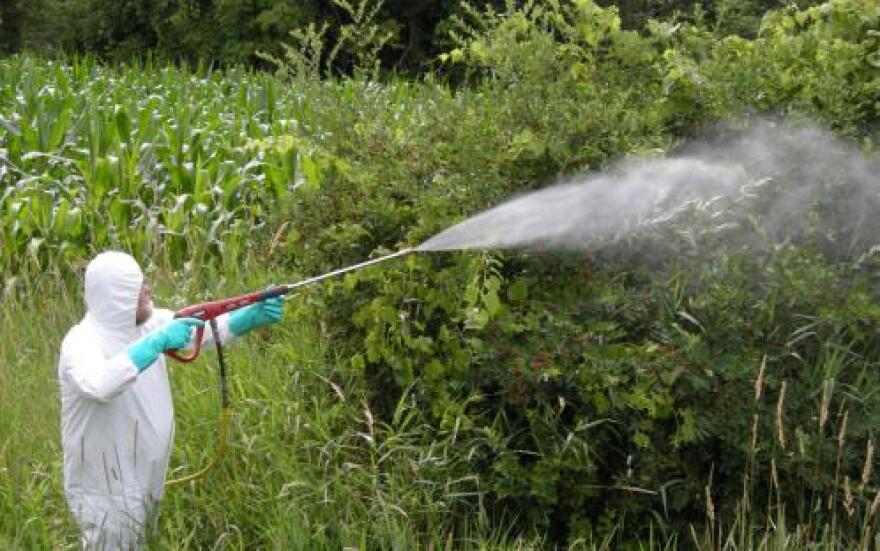Chlorpyrifos is a common insecticide sprayed on fruits, vegetables and golf courses around the world since the 1960s, but increasingly linked by scientists to brain damage and developmental problems in children.
After being petitioned by public health organizations, scientists at the U.S. Environmental Protection Agency in November 2016 -- at the end of the Obama Administration – recommended a ban for chlorpyrifos because of these health concerns.
But as one of his first acts as the Trump Administration’s Administrator of EPA, Scott Pruitt in March 2017 overruled his scientists and allowed manufacturer Dow Agro Sciences to continue to sell the pesticide.
In Maryland, state Delegate Dana Stein, Vice-Chair of the House Environment and Transportation Committee, recently worked with colleagues to introduce legislation that would counteract the decision of the Trump Administration and ban chlorpyrifos in Maryland.
During a hearing on the bill on February 7, Stein, a Democrat from Baltimore County, explained his reasoning for outlawing the pesticide in the state.
“Chlorpyifos is a pesticide that attacks the nervous systems of animals, including humans,” Stein said. “In the year 2000, EPA eliminated indoor application of this pesticide to protect children. Since then, scientific studies have documented harm from even smaller exposures of chlorpyrifos than previously studied, including significant nervous system problems to fetuses, and to young children, leading to developmental delays and autism.”
Dr. Michael Ichniowski is a member of the Maryland chapter of the American Academy of Pediatrics. He also testified in favor for the ban.
“This chemical is unambiguously dangerous, and should be banned from use,” Ichniowski said.
But on the other side of the debate is the chemical industry and the Maryland farm lobby. They argue that Maryland fruit farmers benefit by spraying the pesticide in winter to suppress flies and worms that would otherwise reduce their crops and profits.
Jay Milburn is a fourth generation fruit farmer in Cecil County who says he sprays the pesticide, which is also known by its trade name of Dursban.
“We do use Dursban,” Milburn said. “It’s very focused, and it does a great job for us. It does what we need it to do for a particular insect.”
Colby Ferguson is the Director of Government Relations for the Maryland Farm Bureau. He argued that it wouldn’t be fair to outlaw the insecticide in Maryland, when fruit growers around the world don’t face such restrictions. These foreign growers could outcompete Maryland farmers and continue to import their produce into Maryland stores, Ferguson said.
“You know, I kind of wonder, if you’re going to the normal grocery store, and you’re picking up apples and things like that – particularly this time of year – are they even from around here?” Ferguson asked. “Or are they coming from another country where there probably are not nearly the restrictions in this state or in this country. So, with that, we would respectfully oppose this bill.”
Maryland is not the only state considering action on chlorpyrifos. Lawmakers in New Jersey and Hawaii are also debating possible bans on the pesticide. And in July, Maryland Attorney General Brian Frosh joined attorneys representing five other jurisdictions -- Massachusetts, New York, Vermont, Washington, and the District of Columbia – to intervene in a lawsuit against the Trump Administration’s EPA to try to end the continued use of the pesticide.
This legal challenge will play itself out in the federal courts, as hearings on the contentious issue continue in the Maryland General Assembly and elsewhere across the country.




